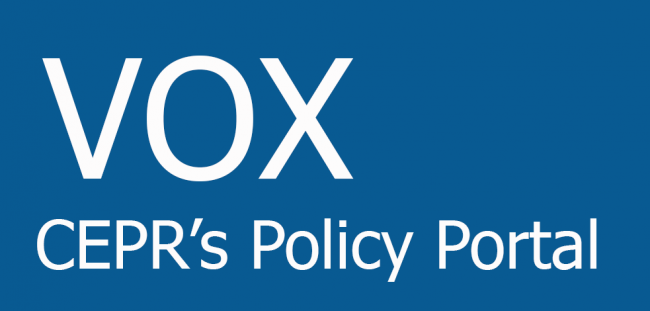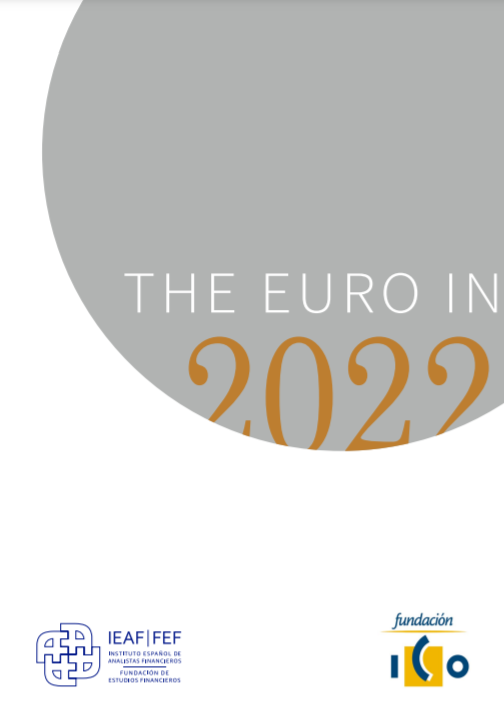Opinion
Fiscal rules and the role of the Commission
The proposals on fiscal frameworks and rules in the recent CEPR Policy Insight on euro-area reform showcase the multiple dimensions of the fundamental dilemmas we are confronted with in the governance of the euro area. This column, part of the VoxEU debate on Euro Area Reform, looks at the challenges to the central role of the Commission that have arisen as the rules-based fiscal framework has been severely compromised.
This column is a lead commentary in the VoxEU Debate “Euro Area Reform“
The 14 French and German economists have put forward a well-argued Policy Insight on reforms of the euro area (Bénassy-Quéré et al. 2018). One of its merits is that it could be a practical blueprint for a set of reforms that are doable even in the short run, and offers important trade-offs for both Calvinists and Catholics.
Amongst others, the proposals on fiscal frameworks and rules deserve a wider discussion as they showcase the multiple dimensions of the fundamental dilemmata we are confronted with in the governance of the euro area. Important amongst these issues are the challenges to the central role of the Commission that have arisen as the rules-based fiscal framework has been severely compromised.
The present situation is well characterised in the Policy Insight. Absent a political union, an internal market – let alone a monetary union – requires a set of rules that governs the fiscal behaviour of member states. Markets alone are not suitable for the task as they react too late and then overreact. They may play a certain role at the margins to the extent that sovereign debt restructuring is not ruled out ex ante.
The present rules-based system of the Stability and Growth Pact (SGP) has become nearly unmanageable due to its complexity, and the constant addition of exceptions, escape clauses, and other factors. This has had negative repercussions on the role and standing of the Commission and its ability to operate as a guardian of the Treaty – even beyond issues of fiscal policy governance. Needless to say, the Council has also proven unwilling to play its role under the Treaty.
The set-up of rules and procedures forces the Commission into actions designed for grief: fiscal adjustment paths are designed on the basis of forecasts of potential output growth, and thus deviations occur with remorseless logic. The choice is thus of proposing sanctions on the basis of shaky forecasts, or of not proposing sanctions despite the rules requiring them. If the Commission does not wish to sanction such deviations, it again and again has to devise a new rule that explains why fiscal reality is in conformity with rules. Whatever the Commission ends up doing is seen as contravening its role and duties under the Treaty by some member states.
This ‘political’ behaviour contrasts with a fairly stable rules-based system, up to around 2010, where the Commission by and large executed the rules without an overly use of discretion. Under the old system the member states took a fairly active role in the discussions, sometimes even the voting, on individual country cases. Under the new system, with a considerably stronger role of the Commission, member states have turned passive, in the meetings largely accepting whatever the Commission proposes. Outside the room, however, they complain bitterly about whatever the Commission proposes.
Streamlined rules
The present system produces fiscal policy short-termism, fine tuning of the rule book, and political loss of legitimacy. Bénassy-Quéré et al. propose a system of streamlined rules, based on debt levels and an expenditure rule, stronger national institutions, and market-based incentives, leading up to possible debt restructuring.
The proposed simplified rules are in accordance with proposals made by a wide variety of economists and institutions, including detailed work on the issue by the IMF. The details are not so important in the context of this comment. Such rules, however, should be able to deal with the tension of:
- providing a steady medium-term framework that does away with the present system of permanent readjustment of targets in light of reality,
- while preventing that fiscal prudence only occurs in the medium term, and never in the short term.
This can rest on political enlightenment of the individual actors, on the threat of market sanctions, on the threat of Treaty-based sanctions, or by increasing the political costs of ‘bad’ fiscal policies. Political costs increase with transparency and information, and through critical dialogue.
How to stick to the rules: Increasing political costs
This should be a two-way system. For one, finance ministers should regularly explain their fiscal policy to a hearing in the European Parliament – less frequently if policies appear to be well on track, more often if not. If there are repeated or significant deviations the European Parliament may also wish to invite heads of state or government to such a hearing.
Transparency should also work better from Brussels to capitals. Both the commissioner in charge of this dossier, as well as the president of the Eurogroup, should be regular visitors to national parliaments in order to explain the euro area dimension of national fiscal policies. In the case of the latter that might well call for the installation of a full-time president of the Eurogroup.
The proposal by Bénassy-Quéré et al. relies on the good offices of national fiscal councils, which would be under the auspices of a central fiscal council. Experience to date with the fiscal councils has been quite mixed. Few have been able to establish themselves as independent, well-staffed institutions that increase critical transparency over national fiscal policies. Relying too heavily on such institutions appears mostly as another swing of the pendulum, handing back more responsibility to the member states as disenchantment with the Commission has spread.
Counting on these institutions to play a major role in ensuring good fiscal policies may be somewhat optimistic. What would be required, as a minimum, would be an agreement on staffing, expertise, independence, access to data, and methodological toolkits. Some of these already exist on paper, but are also followed only on paper. For these institutions to function well, as envisaged by Bénassy-Quéré et al., they would need to be perceived by the member states as an irritating control mechanism that is well heard in the national political discourse. Even in Spain and Portugal, where the fiscal councils are first rate, this is only partially the case. The European Fiscal Board could play an important role at the centre of such a system. Note that its present design ensures that it cannot influence current decisions.
An important institutional suggestion in the paper deals with separating the roles of ‘surveillance watchdog’ and political decision maker within the Commission, or even by moving the watchdog out of the house. Ultimately what counts is not the analysis, but how it is acted upon. This works well in the field of competition policy, which may influence the attractiveness in using this model for fiscal policy. Most important is transparency of what the rules require in terms of adjustment to fiscal policies. Put differently: if the watchdog barks, does anybody outside the Commission hear him barking? Such transparency could be achieved without extensive institutional reforms.
How intrusive?
Finally, one needs to reflect on the degree of intrusiveness of a system of fiscal rules, also in light of constitutional issues. Every presumed breaking of the rule book has resulted in further refinement of our rules. The Vademecum now has 244 pages. Granularity does not increase discipline. There may even have been at some stage a tendency to cover every conceivable situation through detailed rules, therefore putting national fiscal policies on something of an autopilot. The world does not work this way, politics even less so. This reinforces the view that interventions should deal with gross error, or significant deviations, not with issues that are somewhere behind the comma.
How effective?
The other side of the coin is the extent to which member states are willing to change the course of fiscal policy in light of interventions by ‘outsiders’. Past experience is mixed, and has shown on balance a larger degree of willingness of smaller member states to take criticism on board. Some member states find it outright inconceivable that their constitutional sovereignty on budgetary issues may be compromised by having to follow instructions from ‘Brussels’.
These issues show that the choices we are faced with in a number of areas also surface in the fiscal area:
- The community method versus intergovernmental cooperation: what should be the role of the Commission, and its relation with the Council (and the Eurogroup)?
- Is the concept of (constitutional or nominal) sovereignty compatible with membership of the euro area?
- Do we want to discipline ourselves through rules, through institutions, through market forces? Or a mixture?
In summing up:
- As correctly analysed, the present system of fiscal rules is no longer workable and its application increasingly incurs political costs to the member states and the Commission.
- This calls for simpler rules that actually can be understood by those who are responsible for fiscal policy in member states
- Relying on a system of fiscal councils to act as watchdogs disregards the efforts of many member states to keep them as weak as possible. Strengthening them, and putting the European Fiscal Board at the centre of such a system, has its merits but one should not expect too much in practice.
- Increasing political costs for governments through structured discussions at the national and euro area level would be an additional incentive for keeping to agreed fiscal paths.
- The Commission will need to remain at the centre of the system, and needs to be strengthened. This needs to be seen in the wider context of the discussions on a ‘political’ Commission. This ‘political’ Commission should be given a wider margin of discretion of applying the fiscal rules; if there are noticeable deviations that the Commission does not act upon, then it should have to publicly explain itself before the Council, the Eurogroup and also the European Parliament.
Most actors who work with these rules agree that they are severely compromised. Governments in turn do not appear to be willing to reform them. They do not realise the costs of maintaining the status quo.
References
Bénassy-Quéré, A, M Brunnermeier, H Enderlein, E Farhi, M Fratzscher, C Fuest, P-O Gourinchas, P Martin, J Pisani- Ferry, H Rey, I Schnabel, N Véron, B Weder di Mauro and J Zettelmeyer (2018), “Reconciling risk sharing with market discipline: A constructive approach to euro area reform”, CEPR Policy Insight No. 91.
Republishing and referencing
Bruegel considers itself a public good and takes no institutional standpoint.
Due to copyright agreements we ask that you kindly email request to republish opinions that have appeared in print to [email protected].














